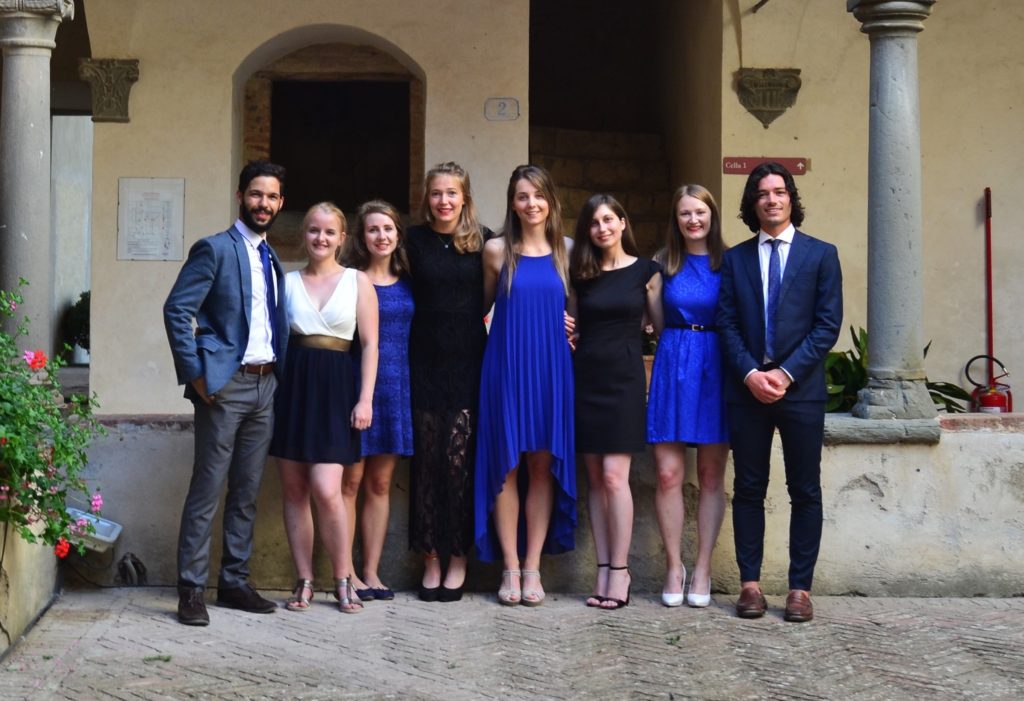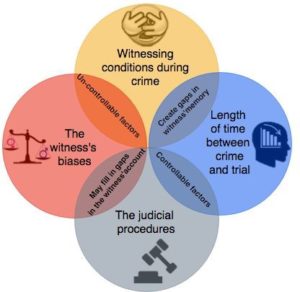Improving decision-making in the criminal justice system: The effect of teaching aids on the evaluation of eyewitness evidence

Supervisor
Mr. Renan Benigno Saraiva, University of Portsmouth
Team
Chief Editor: Lucy McGill
Project Manager: Marie Stadel
Public Relations Officer: Gulia Bertoldo
Policy Officer: Ludvig Bjørndal
Lead Analyst: Stephanie Richardson
Finance and Funding Officer: Ingvild Sandø Lofthus
Communication Officer: Cătălina Bunghez
Project outline
Eyewitness testimony is one of the most compelling types of evidence used in trials but these testimonies are not always accurate and have led to wrongful convictions in the past.  Judges, jurors and other triers of fact rely heavily upon eyewitnesses. However, lack of awareness of evidence-based facts as well as sources of error in eyewitness testimony can impair decision-making. Effective communication with triers of fact is therefore of utmost importance in achieving reliable and fair trials.
Judges, jurors and other triers of fact rely heavily upon eyewitnesses. However, lack of awareness of evidence-based facts as well as sources of error in eyewitness testimony can impair decision-making. Effective communication with triers of fact is therefore of utmost importance in achieving reliable and fair trials.
This project will test the effects of communicating scientific guidelines to triers of fact in legal decision-making settings. We aim to build upon existing communication procedures to try to improve fairness in the criminal justice system.
Specifically, we will test an existing scientific guideline which has been shown to increase the sensitivity to eyewitness evidence: The Interview-Identification-Eyewitness (I-I-Eye) factor method. This forensic aid provides instructions about what triers of fact should take into account when evaluating the interview procedure, the identification procedures adopted and factors during the crime that could have affected the eyewitness memory.
We will add to this method an active component which will permit the evaluators to actively apply the information learned from I-I-Eye to the case at hand.
The infographic show how our research will test whether knowledge and better communication of these aspects allows for an improved assessment of eyewitness testimony!
Would you like to know more about..
..how reliable is your memory?
Watch this Ted talk by Elizabeth Loftus, a renowned memory expert.
..why eyewitnesses get it wrong?
In this Ted talk, the forensic psychologist Scott Fraser discusses why eyewitnesses might provide inaccurate accounts, drawing from the real case of Francisco Carrillo, whose erroneous conviction relied upon eyewitness testimonies.
..eyewitness testimony?
Watch these CBS News TV reports about eyewitness testimony, showcasing the famous case of Ronald Cotton and Jennifer Thompson.
..what it is like to be an eyewitness?
Test whether you can spot the murderer!
..Eyewitness Inaccuracy, Source Monitoring Error, and Misinformation Effect?
In this interactive experience, you will learn more about all this, while playing along in a staged mock crime.
https://www.youtube.com/watch?v=RWO2UQ4MW7U&t=416s
..scientific guidelines and teaching aids?
A number of different instructions and teaching aids have been proposed in the scientific literature, some of which are the Telfaire instructions, the Henderson instructions and the Interview-Identification-Eyewitness teaching aid. To know more about them, have a look at these resources:
- Jones, A. M., & Penrod, S. (2018). Improving the effectiveness of the Henderson instruction safeguard against unreliable eyewitness identification. Psychology, Crime & Law, 24(2), 177-193.
- Safer, M. A., Murphy, R. P., Wise, R. A., Bussey, L., Millett, C., & Holfeld, B. (2016). Educating jurors about eyewitness testimony in criminal cases with circumstantial and forensic evidence. International journal of law and psychiatry, 47, 86-92.
- The Interview-Identification-Eyewitness Factor (I-I-Eye) Method for Analyzing Eyewitness Testimony: http://www.thejuryexpert.com/wp-content/uploads//1305/JuryExpert_1305_IIEye.pdf